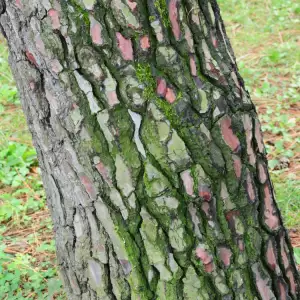Pycnogenol is a natural substance that was discovered in the 16th century. The 1st accounts of its effects come from the sailors who were part of Captain Jacques Cartier's crew.
They suffered from scurvy, while the extended period of sailing put them at risk of a sure death. Taking a healer's advice they were cured with an extract from the bark of local trees.
Pycnogenol is a product obtained from the bark of the maritime pine (Pinus pinaster) which grows in the southwestern regions of France. The extract from this pine contains a complex of biological substances that belong to the group of bioflavonoids.
Composition of Pycnogenol
The chemical composition of pycnogenol has been very well studied. It contains 85% proanthocyanidins, 5% water and 10% organic acids - gallic, ferulic, caffeic. Pycnogenol contains a combination of over 40 beneficial substances, which is why it brings a series of health benefits.
Benefits of Pycnogenol
The proven effects of pycnogenol stem from a series of clinical observations and research throughout a period of several decades. The extract from the bark of the maritime pine has beneficial effects in the treatment of over 50 diseases that are related to the harmful effects of free radicals, while at the same time having preventive actions against them.
Some data even show that the antioxidant pycnogenol is 50 times more potent than vitamin E and 20 times more potent than vitamin C. An American doctor has even proven that the antioxidant properties of pycnogenol were the main contributor to improvement of semen quality in men with reduced fertility.
Pycnogenol protects against cardiovascular degeneration; strengthens veins and arteries; regenerates and prevents the development of permeable capillaries; improves cell vitality and circulation.

Pycnogenol is several times more effective than traditional drugs in preventing buildup in blood vessels, which at a later stage becomes a main cause of heart diseases that lead to heart attack.
The valuable extract from maritime pine boosts the body's defenses; reduces arthritis symptoms; has beneficial effects on vision and memory; slows the process of aging in cells and improves skin elasticity; reduces the likelihood of an outbreak of allergies.
Pycnogenol has well-defined anticarcinogenic properties; significantly lowers stress from the busy daily routine and ensures psychological comfort.
The extract from maritime pine bark is exceptionally beneficial for people who are subject to mental and physical strain on a daily basis; who are active or passive smokers; for persons with an increased risk of cardiovascular and degenerative diseases; for prevention and prophylactic against varicose veins.
It's been found that pycnogenol improves endurance in men and women by over 20% due to its beneficial effects on the circulatory system.
Scientists from Japan have also proven the advantages of taking pycnogenol for gynecological problems such as a hysterectomy, complications after birth, strong menstrual cramps.
Scientists from the University of California system have proven that the extract blocks production of nitrogen dioxide - one of the biggest radicals that the lungs produce.
Taking Pycnogenol
Pycnogenol can be taken in the form of food supplements. These are available in health food stores and most pharmacies.
Pycnogenol works best when used in combination with other antioxidants and minerals. It combines well with vitamins A, C and E, with minerals such as selenium, zinc and manganese.
Dangers of Pycnogenol
Years of experiments have proven the purity and safety of pycnogenol. It is not considered a toxic, mutagenic or carcinogenic product.







Comments